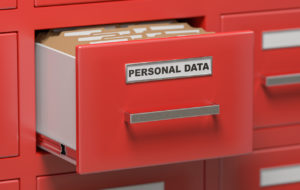
[From last episode: Europe has privacyRefers to whether or not information gathered about your usage of IoT devices by authorized people can be made public, or shared with others, without your consent. Different from (although related to) security, which protects such data and devices from access by unauthorized people. Different from privacy, which is more concerned about use of data by authorized people. regulations, but they may also affect the US and other countries.]
Let’s look now at a question: why do we worry about privacy anyway? How does privacy impact us? You’ll sometimes hear someone say, “I have nothing to hide, so I don’t care if anyone sees anything.” Of course, we all know that, in real life, secrets don’t mean that someone has something to hide. We humans can be pretty brutal to each other, depending on what we think we know. You know, pitchforks and torches and all that.
What Are We Hiding?
Industry has clear things to hide. As mentioned before, companies compete, and competitors would love to know the secrets of success for the guy that’s beating them. Or they might want some dirt so that they can educate their customer – or perhaps confuse them with FUDFear, Uncertainty, and Doubt. This is a sales tactic used to confuse someone about the competition. The information may or may not be true, but using FUD is often seen as a somewhat desperate way to get a sale..
We consumers fit more in the category of, “It’s none of your business.” Do you really want everyone to know which medicines you take? How much ice cream you eat? Where you go to be alone? Of course not. And there’s no reason for anyone else to know this.
Except that one group stands out as different from the nosy Parkers that you might be thinking of now. It’s a group I’ve been particularly attuned to – perhaps too attuned? It’s advertisers. This country runs on advertising – it’s been postulated that it might be part of why we’re not a happy nation. How could we be happy when there are unlimited happy-making things that we haven’t purchased yet? (Today’s issues may be different, according to this, which you might view as political).
And, as I’ve mentioned, the ability to sell data comes up often in conferences as part of the value of the IoTThe Internet of Things. A broad term covering many different applications where "things" are interconnected through the internet.. Imagine how fun life would be if every smart homeA buzzword for interconnected home devices - TV, refrigerator, door locks, etc. implement had a screen plastered with ads based on how you use that device. It reminds me of the screens on the back of airplane seats that make you stare at ads the whole trip (unless you purchase entertainment). More than one person has taped a piece of paper over it. So will you be taping over your home appliances?
Are We Worrying Over Nothing?
If that’s the fear, then what’s the reality? First, remember that this stuff is just emerging – lots can and will change. But here’s what I found interesting in my conversation with Ayla Network‘s Sahir Sait. They hold meetings with key customers (who build IoT devices) to learn what they want. Making it easier to sweep up user personal data has never come up. That’s not what they’re looking for at the moment.
So, if they’re not selling the data, then why collect it? Because they can learn how people are using their devices. They may find out that some features are hard to use – or are never used. Or perhaps they can make a service more efficient. This is all about building better products and servicesWe are used to purchasing products outright. "Services" is a new concept where you may or may not buy the product, but optional or mandatory services come with the product. Those services may have an ongoing cost separate from the purchase price. going forward.
That’s kind of refreshing. Perhaps I’ve been too cynical.
But can we count on this going forward? Well, let’s first remember that not everyone is behaving this way, as we saw with the Roomba before. So this isn’t a made-up thing. But one of the issues appears to be that there’s so much other personal data available on the internet that, at present, it’s simply easier to use that than to figure out how to make sense of all the IoT data. Not sure if that’s reassuring, but it’s something.
Another fact: according to Mr. Sait, more than 50% of “connected” devices are never connected (anecdotal data). That’s usually because they’re too hard to connect and register – the so-called on-boardingThis is the process of connecting an IoT device for the first time. You connect to a network, and then the device connects "home" for registration and for confirming that the device is legitimate. process. So the whole data landscape has big holes in it.
Yes, some devices must be connected. If you have a connected glucose monitor, then it may simply radio raw data up to the cloudA generic phrase referring to large numbers of computers located somewhere far away and accessed over the internet. For the IoT, computing may be local, done in the same system or building, or in the cloud, with data shipped up to the cloud and then the result shipped back down., with the cloud making the medical decision. If you don’t connect, then you can’t do the thing your device was intended to do. But, apparently, many devices don’t require a connectionThis refers to some kind of electrical connection. It might be through a network cable, a cable connection, a wireless connection, or a phone - just to name some options. The connection might be to the internet or to some other local device. to operate. (Which is good from a privacy standpoint: more choice for you.)
And What About the Future?
What does this foretell for the future? Hard to know. On-boarding will probably get easier so that more people will connect. And if there truly is advertising value in all that data, and it’s just too hard to extract right now, then that’s a clear opportunity for some company to come in and solve that hard problem, selling their technology to advertisers to make IoT data mining more feasible. So, while we may be in better shape at the moment than we think (although not perfect), we need to continue to pay attention.

Leave a Reply